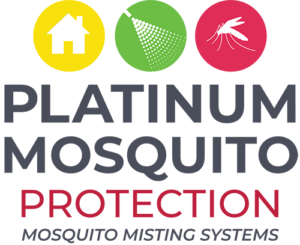
The US Environmental Protection Agency (EPA) has approved the use of Wolbachia pipientis to be used against wild mosquitos that transmit harmful viruses
A Lexington, Kentucky biotechnology startup company called MosquitoMate is purposely raising and releasing lab-reared mosquitos in 20 US states and Washington, DC. As if there aren’t enough of these pests already! There’s a twist, however.
These lab-bred mosquitoes will also carry a bacterium called Wolbachia pipientis.
Good grief, this sounds like the premise for some kind of science fiction movie. Should we be concerned? Think more along the lines of a cowboy movie. MosquitoMate is like the Kentucky Calvary, and those mosquitos are on a mission to make it more enjoyable to be outside.
Working with the government
Lest you think this is a rogue biotech startup acting on its own, you should know that the US Environmental Protection Agency (EPA) has approved the use of Wolbachia pipientis to be used against wild mosquitos that transmit harmful viruses such as Zika, yellow fever, and dengue.
One of the prevalent species threatening us here in the United States is the Asian tiger mosquito Aedes albopictus. The bacterium is deadly to wild populations of this mosquito.
Plan of attack
The biotech startup rears Asian tiger mosquitos that are infected with the bacteria in its laboratories. Then it sorts the males from the females.
You might be wondering how you “sort” mosquito eggs, but it shouldn’t surprise you to discover that scientists have mechanical sorters which help them. The devices are capable of identifying and sorting the mosquitos at their pupal stage with nearly 99% accuracy. If you’re wondering what happens to the theoretical 1% of females that might sneak by, the entire sorted batch is exposed to X-ray radiation. It sterilizes any females. The X-ray dosage is too low to sterilize the males.MosquitoMate is a small startup, though. Technicians are still doing some of the separations by hand.
It’s important to remember that male mosquitos don’t bite. They’ll be released at key study sites, where they will mate with females, which don’t carry the Wolbachia pipientis bacteria. The females’ fertilized eggs won’t be able to hatch because their paternal chromosomes cannot properly form.MosquitoMate predicts that over time, the Aedes albopictus mosquito population will drastically decrease, posing less threat of being a vector for the harmful viruses they’re known to carry. The startup is careful to point out that other insects—including even other breeds of mosquitos—will not be impacted by the process.
Not ready for prime time
While the concept is promising, even the startup notes that it may be quite sometime before any of us see a noticeable difference. The EPA is keeping a close eye on things, as well. The agency currently has approved the release of these bacteria-laden male mosquitos to just 20 states and the Washington, DC area.
Those states have the same temperature and precipitation level as the Kentucky-headquartered startup. Unfortunately, it excludes the majority of the southeastern US, where the densest populations of Asian tiger mosquitos are located. The EPA has asked MosquitoMate to complete field trials in this geographical area before it will expand the mosquito release footprint. That work has already progressed. MosquitoMate successfully developed a variety of the A. aegypti mosquito that carries the Wolbachia pipientis bacteria and tested it in the Florida Keys.
Meanwhile, the ability to suppress the mosquito population of even a small city would require millions of the male mosquitoes to be released weekly. The startup’s capacity isn’t up to that ability just yet, but they’re hoping that sales of its mosquitos to nearby Lexington, with expansions to Louisville and Cincinnati, will help them expand capacity.
Promising progress
Traditional forms of mosquito control are still the most efficient and affordable way to keep these pests at bay and protect ourselves from the viruses they carry. MosquitoMate will continue their approach, and they join a growing global group of biotechnology companies who are using lab-grown mosquitos to manage wild populations. The idea shows great promise, and researchers continue their attempt to make it a viable approach.
In the meantime, an effective, working way to reduce the mosquito population around your home or business is by using an automatic misting system from Platinum Mosquito Protection. For more information about how the system works or a free on-site consultation, get in touch with us today.
